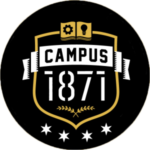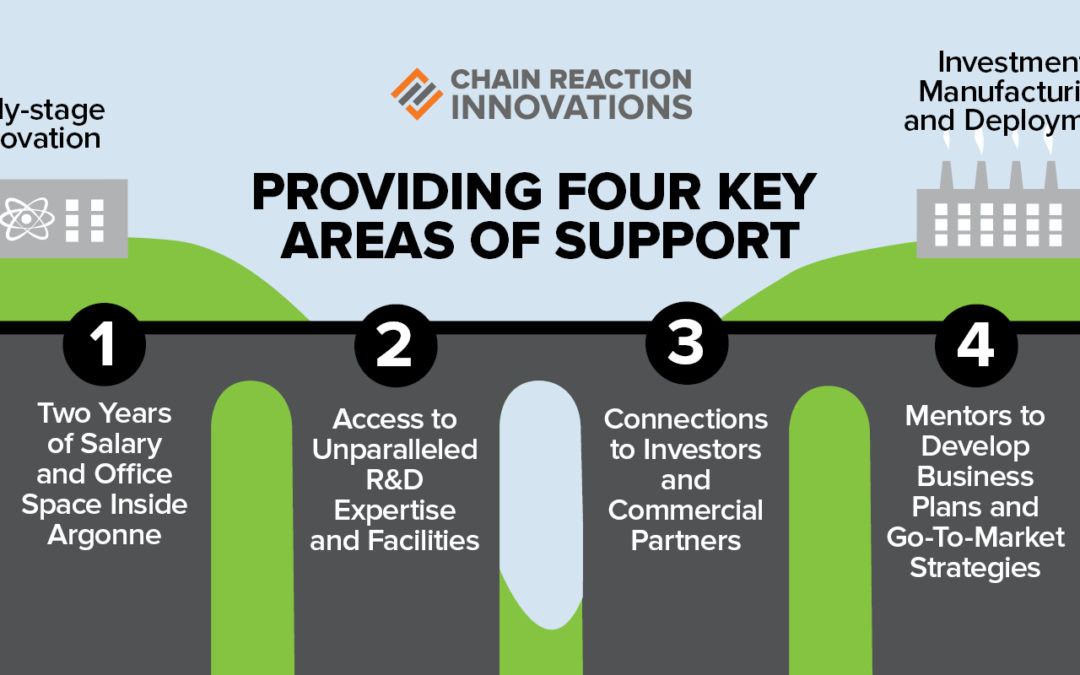Q/A with Andreas Roelofs, Director, Chain Reaction Innovations and Nano Design Works, Argonne National Laboratories
![CRI_social_BKG _R53[2] (1)](https://www.istcoalition.org/wp-content/uploads/2017/01/CRI_social_BKG-_R532-1-300x150.jpg)
Known for its strengths in supercomputing and clean energy, Argonne National Lab has a long tradition bringing together some of the world’s foremost scientists and most advanced facilities to take on many of the world’s biggest challenges. Continuing the tradition of collaboration and scientific advancement, Argonne recently announced the launch of its first-ever in-house startup incubator, Chain Reaction Innovations (CRI).
Designed to allow entrepreneurs to work side-by-side with practicing scientists, CRI offers entrepreneurs a two-year residence at Argonne to develop and vet their technologies before bringing them to market. Along with mentorship from Argonne scientists and use of their state of the art facilities, CRI provides entrepreneurs with business guidance from the University of Chicago and Purdue University. This combination of access to Argonne resources and one-on-one business mentorship offers a new approach to promoting entrepreneurship and innovation. Chain Reaction’s first cohort includes entrepreneurs from around the country working to improve jet engines, energy storage, and sustainable tech. Click to read a conversation with Andreas Roelofs, the Director of the incubator, delving into the idea and process behind the initiative, the specifics of the program, and plans for expansion.
1. Chain Reactions Innovations (CRI) brings entrepreneurs into Argonne to work side-by-side with scientists, while also harnessing business mentorship from the Polsky Center at the University of Chicago and the Purdue Foundry at Purdue University to help grow their businesses. What was the thought process for designing the program in this unique way?
Developing physical science-based technology is extremely hard: it requires expensive equipment, lab space, and a long development time. CRI wants to ensure that our innovators can spend the maximum amount of time developing and scaling their technology rather than scrounging for resources. We also want to ensure that they can de-risk that technology as quickly as possible. To this effect, innovators get to work with 1,600 scientists and engineers at Argonne and access to world-leading equipment.
The mentorship from the Polsky Center and Purdue Foundry ensures that innovators’ technology does not languish in the laboratory but quickly makes it to the marketplace where it can address global challenges in energy, sustainability and advanced manufacturing. Both universities have stellar records of launching successful startups and developing strong business leaders. By having Polsky and Purdue work with the innovators from day one, the innovators can leverage the region’s vibrant industry and investor ecosystem to quickly pivot development and optimize product fit.
2. What sort of business guidance and mentorship will U of Chicago and Purdue provide? Will entrepreneurs enter a formal program with these schools or is their guidance more informal?
The program is agile and adapts to each innovator’s needs. In general, innovators have the opportunity to take advantage of educational seminars and networking events, collaborate with business students from the schools on customer discovery and business plan development, expand their teams, and access entrepreneur workspace and resources.
3. How is the funding for entrepreneurs structured? What are the benefits to structuring funding in this way?
Innovators of our first cohort receive up to $350,000 during two years to use for equipment and manpower towards developing and scaling their technology at Argonne. They also receive a salary and travel stipend worth up to $110,000 a year. By providing a salary, innovators can focus full-time on their technology.
4. Over 100 startups applied to the CRI program. What was the application and selection process like for startups? What characteristics were you looking for in applicant startups?
CRI eligibility requires applicants to be first-time founders, U.S. citizens or permanent residents, and having raised less than $1 million in private sector funding at the time of entry into the program. Innovators must focus on developing technology that will advance the development of clean energy or advanced manufacturing products. The technology must also focus on solving, at least in part, a large societal need that hinders American competitiveness. Innovators that stood out showed a mix of technical and business knowledge as well as a willingness to pivot.
Innovators from 22 states applied and proposed innovations in transportation, electronics, materials, energy storage and generation, sensors, chemicals, health and food security. About 50 percent of applicants work in startups and the remainder are students, professors, postdocs and members of industry. Academic and industry experts reviewed the applications for technical merit and shortlisted them for a semi-final and final pitch competition, where the final four were chosen.
![CRI social _R42[1]](https://www.istcoalition.org/wp-content/uploads/2017/01/CRI-social-_R421-1024x512.jpg)
5. A similar startup-focused program at Lawrence Berkeley National Lab preceded CRI, what were the outcomes for the startups involved in that program? What learnings from that program were applied to the design of CRI?
The program, Cyclotron Road (CR) at Berkeley has been successful in increasing enthusiasm for innovation as part of the laboratory culture. The startups have received national attention, such as receiving R&D 100 awards and attracting additional funding. CRI follows the CR model and embeds innovators into a national laboratory and seeks out highly qualified, outcome-orientated technical founders that have the vision to lead a team. While CR is hosted in California in Silicon Valley, CRI has been adapted to leverage the Midwest’s vibrant ecosystem of entrepreneurs, investors and potential industry partners.
6. The benefits of the CRI program to startups are enormous, but what benefits can the entrepreneurs in the CRI program provide to the Argonne community?
The innovators provide a fresh viewpoint, and new ideas. Through their networking they increase awareness of Argonne’s capabilities to other entrepreneurs and industry partners. The innovators can collaborate with Argonne scientists to develop new products and they bring with them funding for equipment and postdocs.
7. Are there any plans to expand the scope of CRI in coming years? If so, how is Argonne well suited for the expansion of the program?
CRI accepts a new cohort of about 4 to 6 innovators annually – interested startups can apply here. Argonne and Chicago are ideal to grow innovation. They sit at the heart of one of our nation’s greatest concentrations of research institutions, an industrial base that is driving cleantech and advanced manufacturing, and a population that embraces innovation. This is a fertile ecosystem in which to grow the nation’s next game-changing energy or material-based technology
Watch
Learn
- Science for the People: How the Department of Energy and its National Laboratories are finding solutions to the world’s greatest challenges
- New initiative connects entrepreneurs with leading Illinois energy lab
- Innovators drawn to Illinois by Argonne National Laboratory’s first embedded entrepreneurship program (profiles of participating cohort)
What we’re reading
- Hyde Park Angels’ 5 biggest lessons from 2016 | 2017 Entrepreneurial Education Series
- iBIO changes name to reflect its mission and role of member companies
- IBM makes clever, safe acquisition, swallows object storage market
- Evanston-based QuesTek Innovations, LLC wins six SBIR/STTR awards
- Celebrating Rockford’s entrepreneurs: A look back and ahead by Dan Cataldi
- Venture capitalists invested $1B in Illinois in 2016
- 88 CEOs from Illinois, Florida and Colorado announce support for BRIDGE Act
- ICYMI: Our updated stats and data on the Illinois Innovation Ecosystem
- Microsoft Chicago kicks off our STEM Challenges with CPS schools: Corliss High School | LakeView High School
Illinois Innovation Network Featured Resource
 A weekend-long (March 31 – April 2) collaborative cross-campus initiative between 1871, Northwestern University, Illinois Tech, UIUC, UIC, UI-Springfield, DeVry University, DePaul University, Loyola University Chicago, and The University of Chicago that welcomes approximately 100 students for an immersive startup extravaganza. Students are encouraged to apply by the deadline – Friday, February 3, 2017.
A weekend-long (March 31 – April 2) collaborative cross-campus initiative between 1871, Northwestern University, Illinois Tech, UIUC, UIC, UI-Springfield, DeVry University, DePaul University, Loyola University Chicago, and The University of Chicago that welcomes approximately 100 students for an immersive startup extravaganza. Students are encouraged to apply by the deadline – Friday, February 3, 2017.

